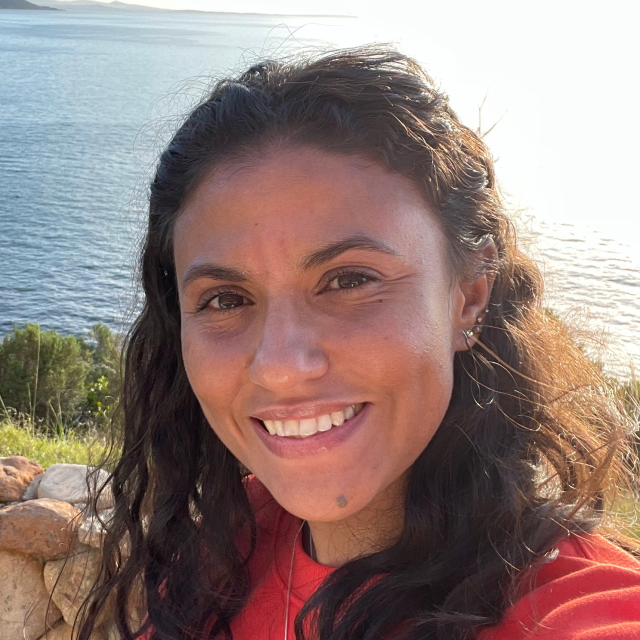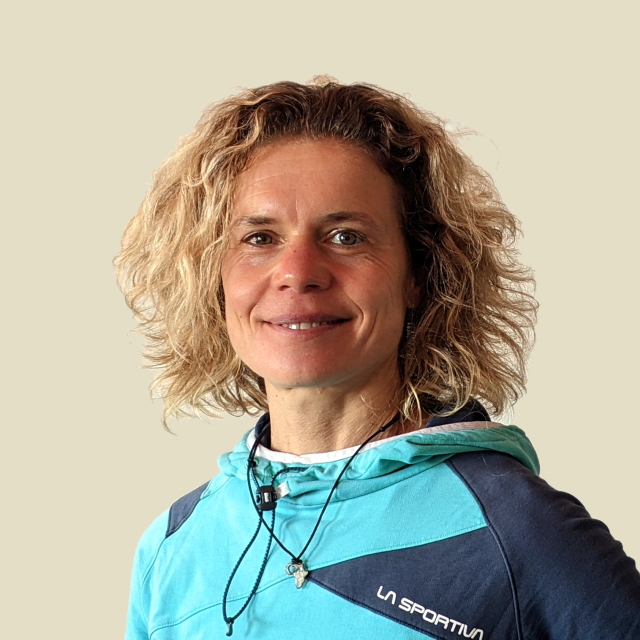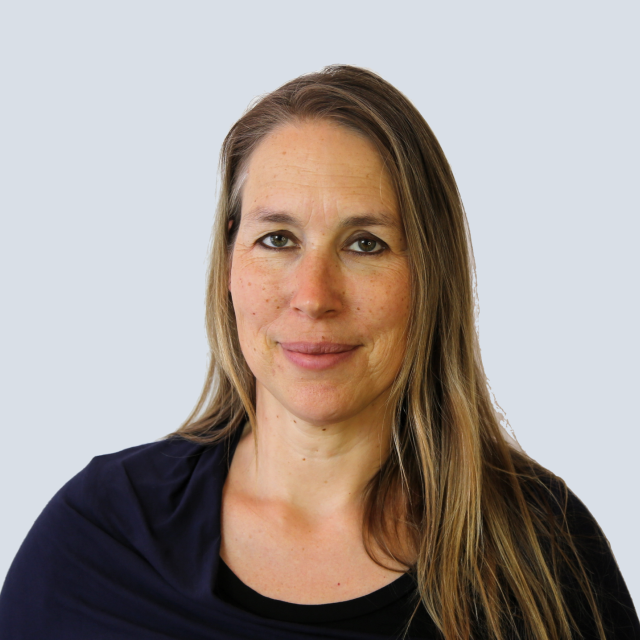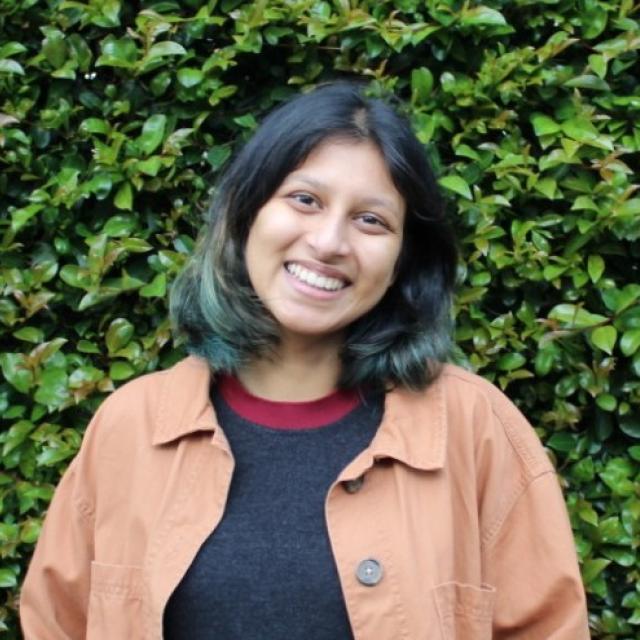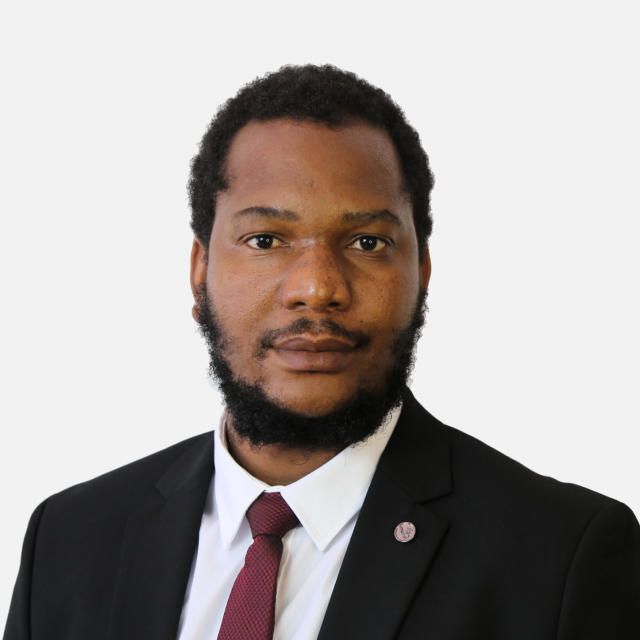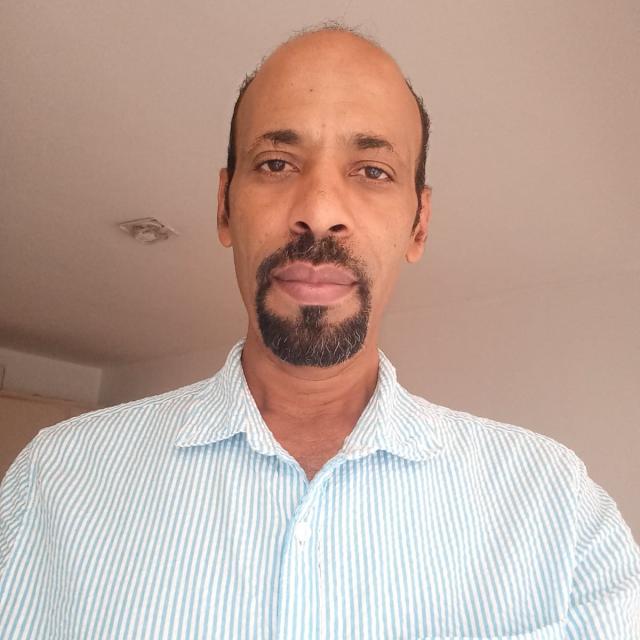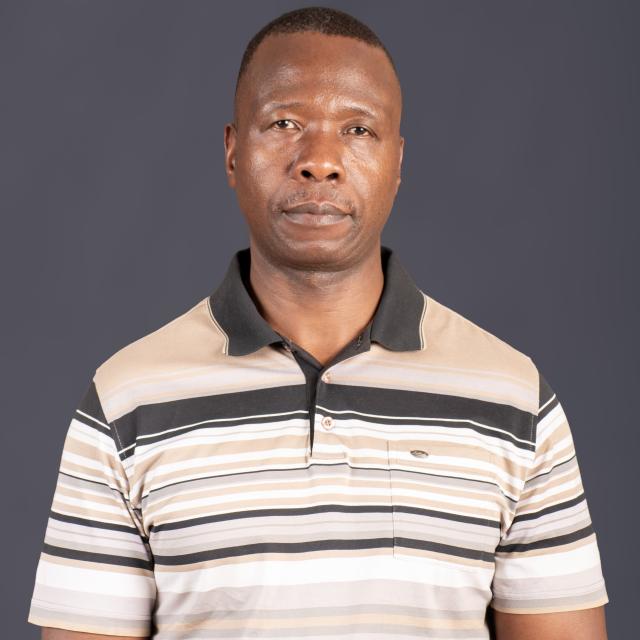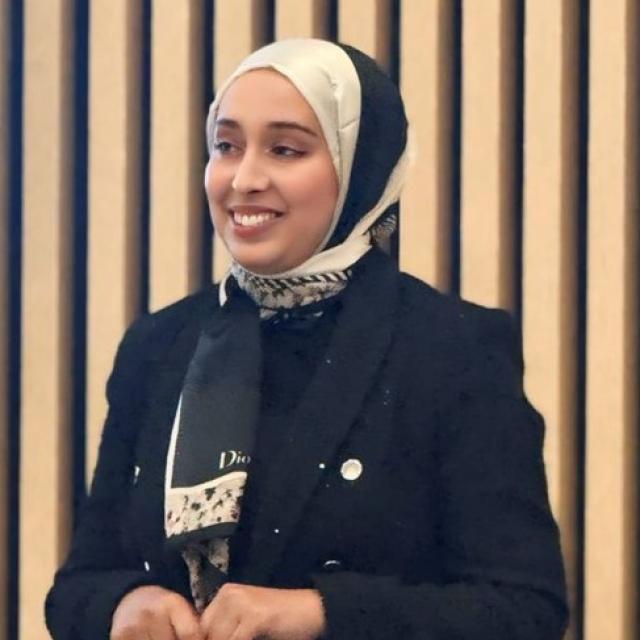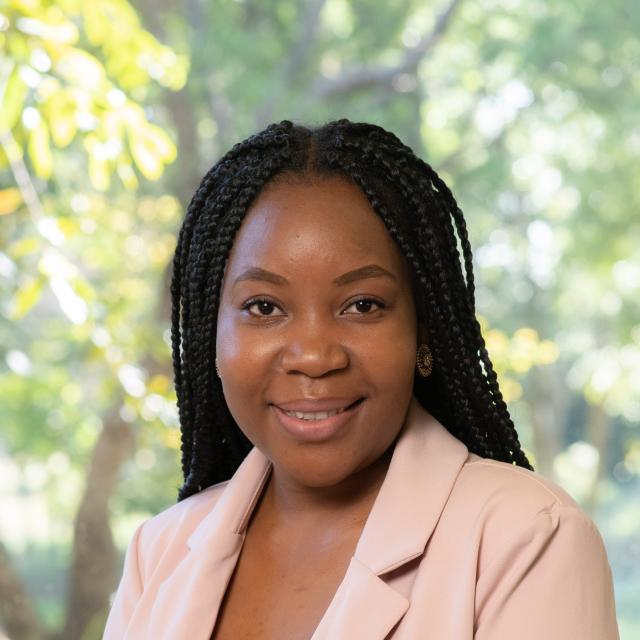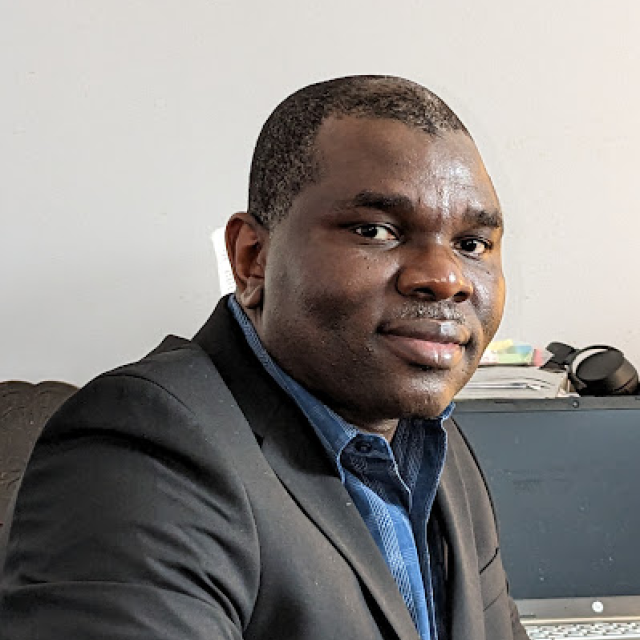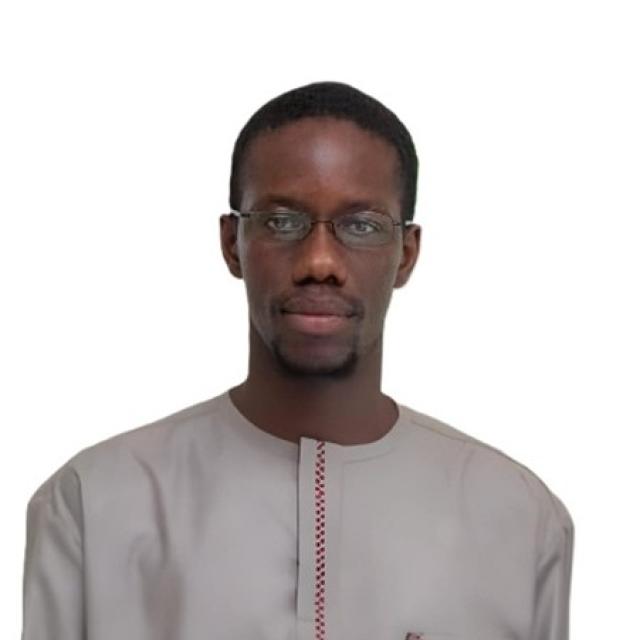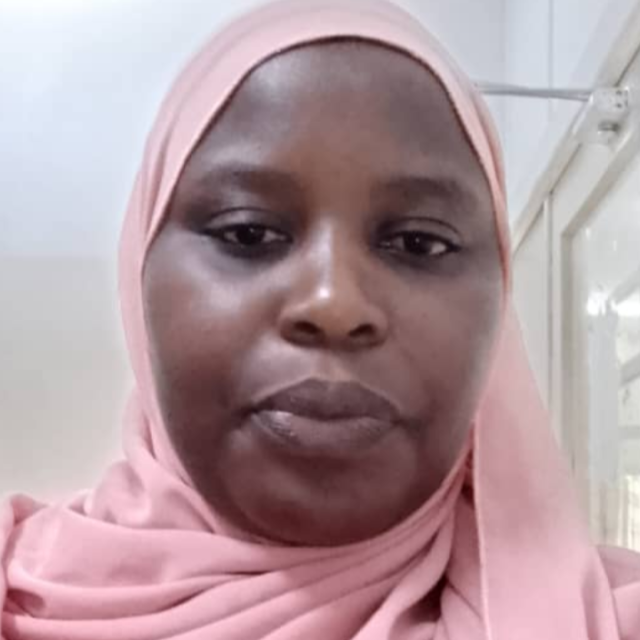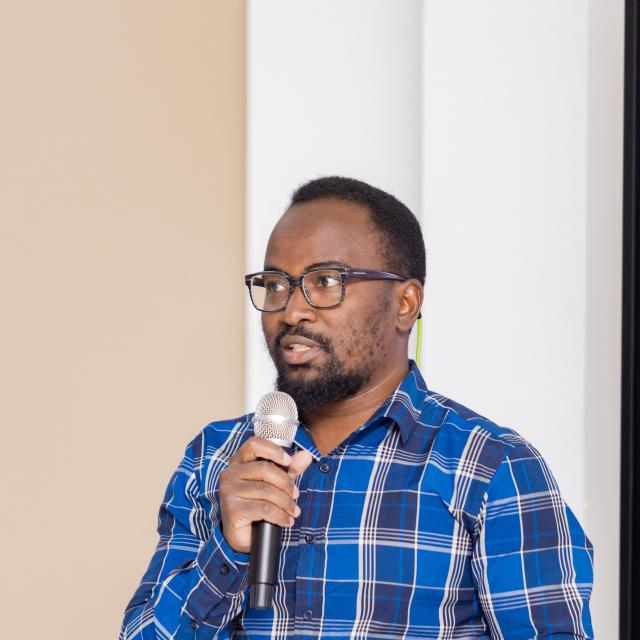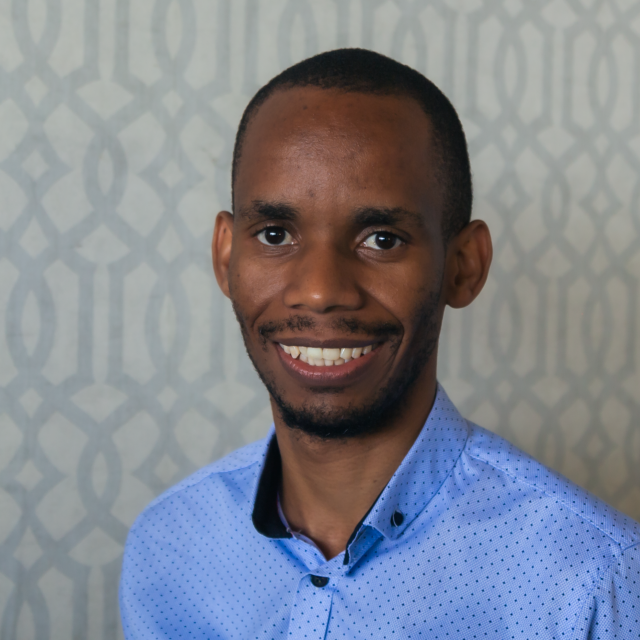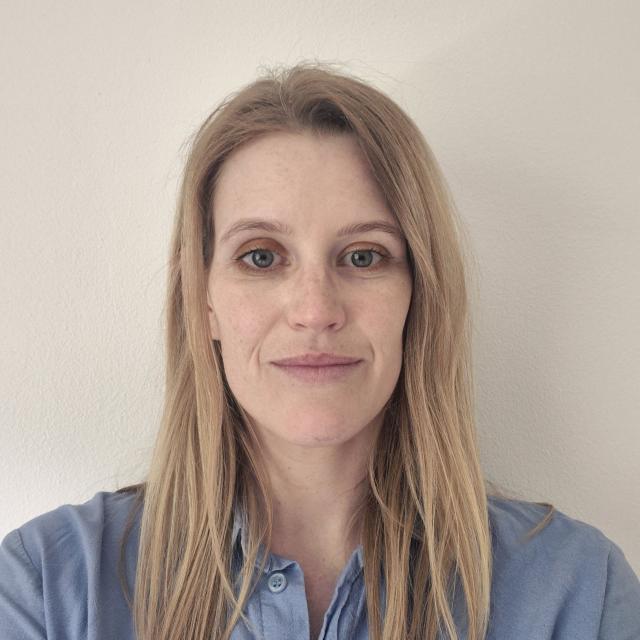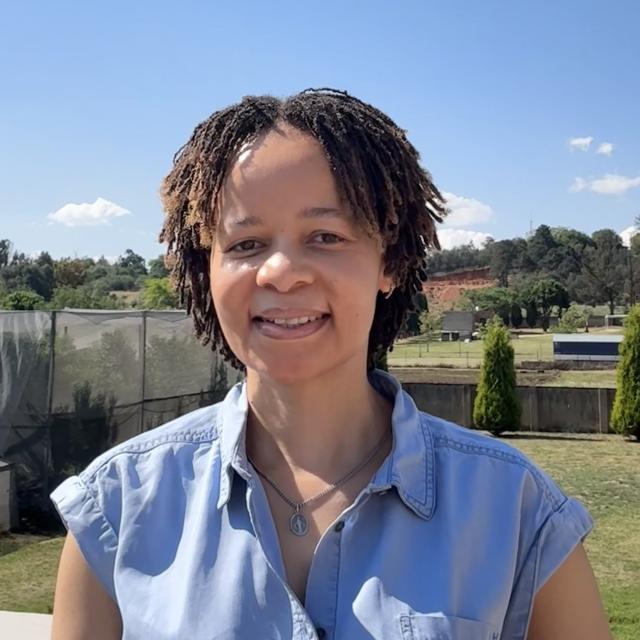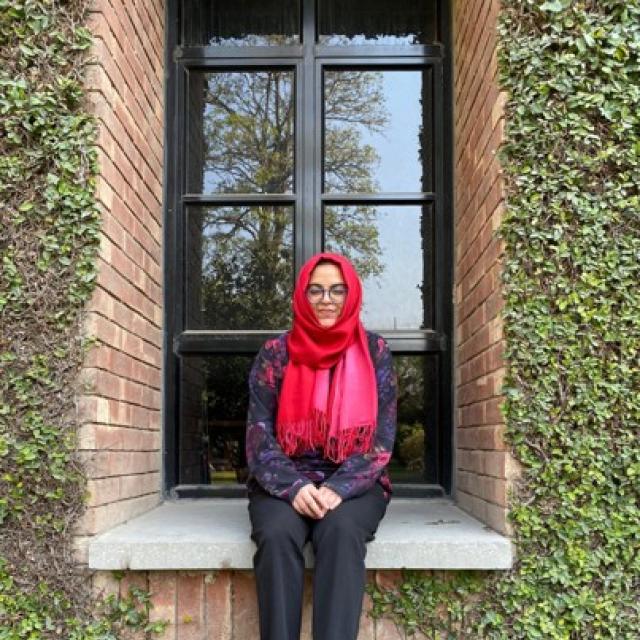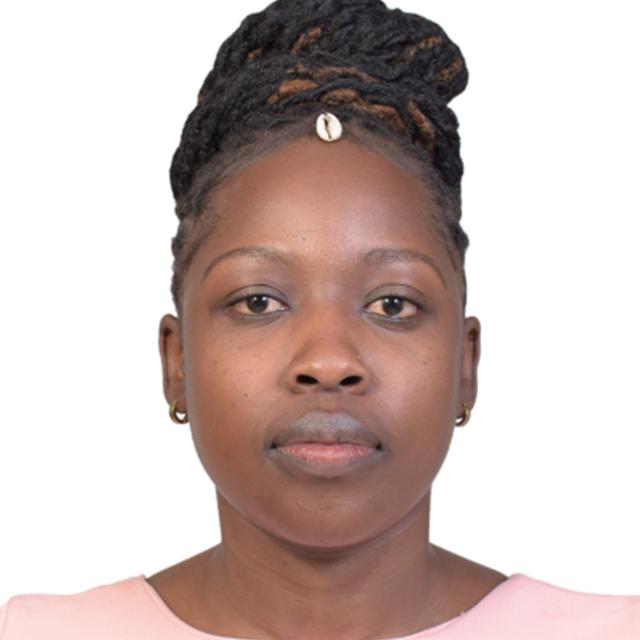ACDI is a collaborative hub at UCT, uniting researchers, academic departments, and institutions to advance climate resilience through research, teaching, and community engagement. Its core team supports an inclusive network of members and students, and oversees the flagship Masters programme in Climate Change and Sustainable Development.
Management Staff
Research Staff
Students
Coursework Masters Students (2025)
Associates
Individual members are known as Associates, and are people at UCT who actively engage with ACDI through research, teaching, student supervision or other activities. Associates may or may not be jointly-affiliated to an institutional member. Associates will have research and teaching interests that overlap substantially with the ACDI intellectual domains.
-
Babatunde Abiodun, SARChI Chair in Ocean & Atmospheric Modelling
Designation: Associate Professor, Department of Environmental & Geographical Science, UCT; SARChI Chair in Ocean & Atmospheric Modelling
Expertise: African climate variability and change; landcover - climate linkages
Babatunde Abiodun is a Professor at the University of Cape Town, where he coordinates the atmospheric science program and leads atmospheric modelling initiatives. His expertise is in climate model developments and applications. His research interest focuses on regional climate issues, including climate modelling, climate variability and change, land-atmosphere interaction, and solar radiation management. He has led a wide range of projects on weather and climate extremes, seasonal forecasting, climate change projections, impacts of geoengineering, and building climate resilience at regional and local scales. Babatunde has published more than 90 peer-reviewed papers in international journals. He was a lead author in the Intergovernmental Panel on Climate Change's 5th Assessment Report and a lead author in the Global Environment Outlook's 6th Assessment Report. He has also served on the editorial board of the Springer Nature Applied Sciences Journal, the Advances in Statistical Climatology, Meteorology, and Oceanography Journal, and the Progress in Earth and Planetary Science Journal. He is an Advisory Board Member of the American Geographical Union’s initiative on the Ethical Framework for Climate Intervention. He has recently been appointed the new SARChi Chair in Ocean and Atmospheric Modelling. Read more.
-
Leslie Ann Ashburner, Transforming Energy Access – Learning Partnership (TEA-LP)
Designation: Project Lead at Transforming Energy Access – Learning Partnership (TEA-LP)
Expertise: Capacity development in Higher Education, low carbon development in Africa. Leslie is currently leading on a UK Aid funded, 5-year programme to build post-graduate capacity for the clean energy access sector in Africa. The Transforming Energy Access – Learning Partnership supports African universities to design and implement multi-disciplinary curricula, responsive to the needs of the energy access sector, linking entrepreneurial, management and community engagement skills with hard skills related to clean energy.
Leslie is currently leading on a UK Aid funded, 5-year programme to build post-graduate capacity for the clean energy access sector in Africa. The Transforming Energy Access – Learning Partnership supports African universities to design and implement multi-disciplinary curricula, responsive to the needs of the energy access sector, linking entrepreneurial, management and community engagement skills with hard skills related to clean energy.Leslie has a Master’s degree in Climate Change and Sustainable Development from the University of Cape Town (UCT). Since 2015, she has worked as a project manager at UCT, with a focus on developing African higher education capacity for climate change responses. Previous projects include coordinating the development of a southern African Master’s curriculum in climate change and sustainable development, and the delivery of the Adaptation Futures 2018 conference in Cape Town.
Email: leslie.ashburner@uct.ac.za
-
Katye Altieri, Department of Oceanography
Designation: Lecturer, Department of ceanography
Expertise: Air pollution, climate change, energy and development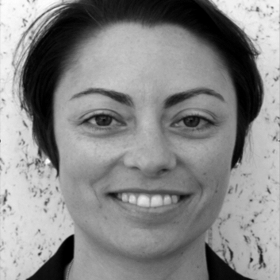
Katye is a Lecturer in the Oceanography Department at the University of Cape Town. She was formerly a Senior Researcher at the Energy Research Centre at UCT, MPP at the Woodrow Wilson School of Public and International Affairs at Princeton University, Visiting Research Fellow at Brown University, Associate Research Scholar at Princeton University, NOAA Climate and Global Change Postdoctoral Fellow, and PhD student at the Institute of Marine and Coastal Sciences at Rutgers University
Katye's research interests in the broad area of climate change and sustainable development focus on low-carbon developmental pathways, and the relationship between climate change, air pollution, energy production and human health. Recent work includes understanding the potential air pollutant emissions from the development of unconventional natural gas resources in the Karoo, the air quality co-benefits of South African climate change policies, and the health benefits of improved access to clean energy. In addition, work on the international Deep Decarbonization Pathways Project focused on achieving development and mitigation objectives through decarbonization development pathways in South Africa. She is also interested in developing air pollution reduction and climate change mitigation strategies to incentivize economic development along low-carbon energy pathways in South Africa. Read more.
Tel: +27 (0)21 650 1222
Email: katye.altieri@uct.ac.za
-
Joyce Kimutai, Analysis and Interpretation of Climate Data for Extreme Weather
Joyce Kimutai is a Research Associate in the Analysis and Interpretation of Climate Data for Extreme Weather. Joyce completed her PhD under AXA Research Chair Programme in African Climate Risk as part of a multi-disciplinary team from the University of Cape Town and University of Oxford, working on research spanning climate, hydrological, agricultural, ecological and economic and adaptation science. Joyce's current research work focuses on quantifying the role and contribution of anthropogenic climate change on extreme weather and climate events like extreme rainfall/floods, droughts and heatwaves. She also explores possible ways in which attribution science can support policy process like loss and damage, and climate litigation. Joyce was also a Lead Author for IPCC Special Report on Climate Change and Land, Chp 3 Desertification. Joyce collaborates on the ACDI-led DECIMALS project with Mark New and Romaric Odoulami.
Email: j.kimutai@imperial.ac.uk
-
Res Altwegg, Centre for Statistics in Ecology, Environment and Conservation (SEEC)
Designation: Associate Professor, Department of Statistical Sciences
Expertise: Statistical ecology; wildlife demography
Res Altwegg is an associate professor at UCT's Department of Statistical Sciences.
"Decision making in conservation often depends on observational data sets where key processes cannot be observed directly. We are estimating wildlife demography from capture-mark-recapture data using models that explicitly account for the observation process," Res explains about his work at SEEC. Current projects focus on the declining African penguin and the rare but increasing peregrine falcon, among many other species.
Res has been studying the connection between life-history evolution and population/community ecology. Conceptually, he strives to combine field observations with controlled experiments and theoretical concepts, and aims to directly connect theory and data through statistical methods, and often uses the Akaike Information Criterion (AIC) to evaluate how well his data support different models corresponding to different biological hypotheses.
One of the main projects Res has worked on, aims to understand the range dynamics of Southern African birds. Many of these birds are presently expanding their range, while others are losing ground. He has been examining the demography of these species to learn what may drive their local population dynamics, and developing methods to quantify range changes more reliably. This work is in collaboration with Dr Birgit Erni at the Department of Statistical Science (UCT) and his colleagues in the Global Change Research Group at SANBI, Dr Guy Midgley and Dr Phoebe Barnard.
For his PhD, Res investigated predator-induced plasticity in the life history of water frogs (Rana lessonae / esculenta). Using artificial ponds and terrestrial outdoor enclosures, he was able to manipulate the growth environment and examine the reaction of these animals during two different stages in their complex life cycle. For his Diploma (MSc), he investigated dispersal between local populations within a metapopulation of House Sparrows (Passer domesticus), and examined how the decision to disperse depended on an individual's age, sex, and morphological characteristics. Read more.
Tel: +27 21 650 5750 · Email: Res.Altwegg@uct.ac.za
-
Phoebe Barnard, Honorary Research Associate
Designation: Chief Executive Officer, Stable Planet Alliance and Affiliate Full Professor, University of Washington
Expertise: Societal and environmental futures; climate and ecosystem restoration; youth leadership collaboration; species vulnerability to environmental and climate change.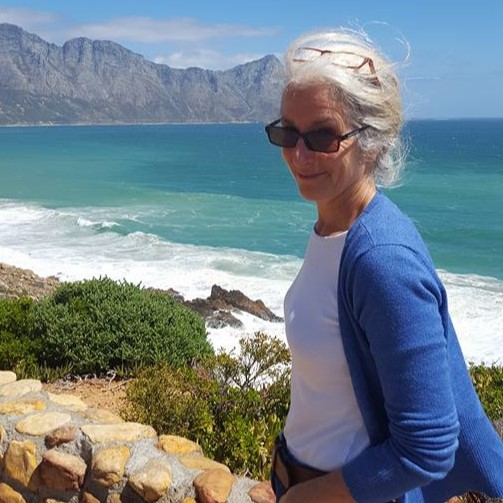
Phoebe is a passionate champion of agency and positive societal change in distressingly turbulent times. Core coauthor of World Scientists’ Warning of a Climate Emergency (2020) and lead author of World Scientists’ Warnings into Action: Local to Global (2021), she is focused on accelerating and aligning global action towards a regenerative future and a kinder, wiser, humbler civilization. Phoebe is now based in the USA as founding CEO of the Stable Planet Alliance, a global coalition of organizations and people working to bend the curve on human planetary impact; affiliate full professor of the University of Washington; and honorary research associate of the ACDI and FitzPatrick Institute of African Ornithology at UCT.
Phoebe has worked on diverse sustainability and biodiversity issues, large and small -- from ecoregional and national biodiversity and climate change strategic planning, policy and implementation, and the global status and trends of ecosystems and their ability to support human health, livelihoods and wellbeing (on the Millennium Ecosystem Assessment board), to ecological vulnerability and adaptation studies on endemic species of the fynbos biome (while based at SANBI and UCT). Phoebe now concentrates on policy change, human behaviour change and media, including filmmaking, as a way to hasten humanity’s degrowth and mindset shift, and to get as many species as possible to get through the gauntlet of the next few hundred years of dangerous climate change. Read more.
-
Anton Cartwright, African Centre for Cities (ACC)
Designation: Founder of PACE (NPO), Researcher at Credible Carbon and African Centre for Cities
Expertise: Economics of climate change, low carbon urban development in Africa, climate change risk.
Anton is an economist with Masters degrees in Development Economics and Environmental Change and Management respectively. Anton is currently completing his PhD at the University of Cape Town exploring the interface between economic theory and the green economy. Anton's work focuses on the application of economics to Africa’s urban transition, green finance, environmental degradation and poverty alleviation and the implication of these issues for the discipline of economics itself.
As an economist Anton has consulted on Africa's emerging green economy, sustainable urbanisation, climate change adaptation, carbon mitigation policies, bioenergy, sustainable trade and integrated water resource management. In 2010 he joined ACC to head their Climate Change City Lab, a role that saw him become the Mistra Urban Futures Researcher on the green economy in Cape Town. Anton continues to be a senior associate of the Cambridge Institute for Sustainability Leadership, and is a founding member of PACE, a not-for profit organisation developing poverty-alleviating carbon trading projects in southern Africa. Read more.
Email: anton@econologic.co.za
-
Megan Cole, Future Water
Designation: Research Fellow at the Future Water Institute and the Minerals to Metals Initiative
Expertise: Sustainable development indicators and policy; sustainability and the mining industry; water inequality and water-use efficiency; quantitative analysis; spatial mapping in GIS
Dr Megan Cole is a Research Fellow at the Future Water Institute and the Minerals to Metals Initiative at UCT. She has a DPhil from the University of Oxford (Sustainability Science), a MScEng from the University of the Witwatersrand (Rock Engineering) and a BScHons from the University of Cape Town (Geology). Prior to her DPhil she worked in the mining industry, working as a geologist, geotechnical engineer and research manager for Anglo Platinum, and she worked on climate change strategy and research in developing countries at the Smith School of Enterprise and the Environment, University of Oxford. Her DPhil research downscaled the planetary boundaries and ‘safe and just space’ framework (or ‘doughnut’) to the national and provincial levels for the first time, explored the challenges of disaggregating national environmental and social data for the Sustainable Development Goals (SDGs) to sub-national levels, and analysed water inequality and water-use efficiency at the local level, making recommendations on SDG 6 indicators. Her post-doctoral research explored new territory in operationalising the SDGs in the mining industry by mapping and measuring the socio-economic vulnerability of all mining communities across South Africa. This included classifying types of mining communities, and a case study on gold mining. Her current research includes developing a National Mine Closure Risk and Opportunity Framework and Atlas; assessing Environmental, Social and Governance (ESG) risks in the mining industry; analysing coal mine closure, community vulnerability and local governance in the context of the just transition in South Africa; and measuring the social impact of mining company spend on local socio-economic development projects.
Email: megan.cole@uct.ac.za
-
Oliver Crespo, Climate System Analysis Group (CSAG)
Designation: Research Officer, Climate System Analysis Group
Expertise: Agronomy, algorithms and crop modelling for climate change optimization; environmental science
Olivier is working towards a better understanding of short and long-term climate change issues in connection with agricultural, and especially smallholder community farming systems, in Africa. His research interests include resources allocation and management, climate change, and optimal adaptation under uncertainty.
The ACDI is affiliated with CSAG through multiple research projects. Within these projects, Olivier participates in improving global agricultural modeling, aiding better understanding of climate impacts on the agricultural sector, and enhancing adaptation capacity in developing and developed countries.Through one such project; the WRC project, Olivier recently took steps to develop crop forecasts for two locations in South Africa, aimed at "better" learning from seasonal forecasts and improved agricultural decision making on monthly to yearly time scales. Read more.
Email: olivier@csag.uct.ac.za
-
James Cullis, Honorary Research Associate
James Cullis is a water resources engineer with over 20 years of experience particularly in Africa, but also in the UK, US, Australia and even Antarctica. He is particularly interested in addressing global water challenges in support of sustainable economic development and adaptation to climate change. His broad range of expertise includes hydrology and hydrological analysis, environmental flow requirements, hydro-economics, engineering design, infrastructure planning and feasibility studies, climate change risks and adaptation. He also maintains strong links to research and academia both in Africa and globally.
-
Leigh Stadler, ARUA-CD
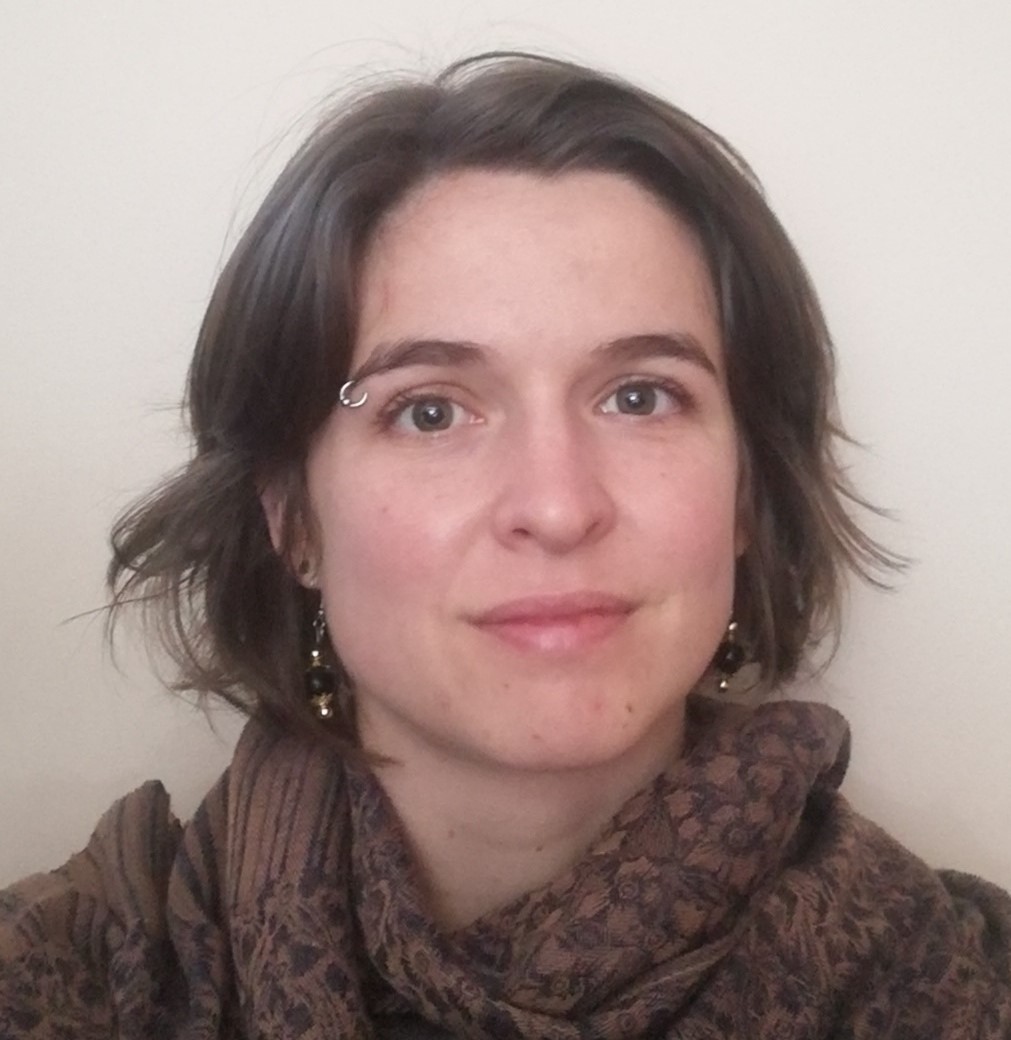 Expertise: Climate change education, climate change graduate pathways, climate change vulnerability & adaptation, sustainable development, project coordination and development
Expertise: Climate change education, climate change graduate pathways, climate change vulnerability & adaptation, sustainable development, project coordination and developmentLeigh is an independent researcher and facilitator associated with ACDI. She holds an MSc in Environmental Science. Leigh's work includes supporting new curriculum development, helping to conceptualise and develop new programs, and building ACDI’s understanding of best practice in climate change education in Africa and the global South through research.
She has worked on or developed over a dozen projects in these areas, including a scientific capacity development study to inform capacity development in the Future Climate for Africa (FCFA) project, and the development of an innovative Masters curriculum in Climate Change and Sustainable Development for Southern Africa. In the ARUA-CD, Leigh has worked with the Curriculum Working Group.
Email: leigh.stadler@uct.ac.za
-
Johan Enqvist, Honorary Research Affiliate
Expertise: Civic engagement, environmental stewardship, human–nature relationships, inter- and transdisciplinary research, natural resource management, network analysis, sense of place, urban social-ecological systems, water governance
Johan Enqvist has worked with ACDI since February 2018. He is currently an Honorary Research Affiliate, leading the project Drought as a Leverage Point For Urban Climate Adaptation, funded by the Swedish Research Council (VR) through Stockholm Resilience Centre. The project aims to explore in what ways Cape Town’s recent water crisis impacted residents’ water saving attitudes and behaviours, and what happens to this impact after the crisis is over. Johan’s first two years at ACDI was as a postdoctoral fellow in the AXA-funded project Urban Governance for Resilience in the Global South. This project explored the governance of urban resilience and water security in Cape Town, and characterized what priorities the City and various other actors and stakeholders have regarding resilience-building and social justice.
Johan is interested in how people living in cities relate to nature and the ecosystems that support them, especially understanding what enables and encourages more sustainable behaviour. He completed his PhD in Sustainability Science in 2017 at the Stockholm Resilience Centre, Stockholm University, Sweden. His doctoral project focused on the notion of stewardship, as expressed through civic engagement for protecting urban ecosystems. Johan holds an MSc in Ecosystems, Governance, and Resilience from Stockholm University and a BSc in Environment and Development from Södertörn University. Throughout his training, he has focused on people's efforts collaborate to manage and protect green (and blue) areas close to where they live. He has conducted fieldwork in Cape Town (2019), New York, USA (2016), in Bengaluru, India (2011-2012 and in 2013), in Zanzibar, Tanzania (2011), and in Babati, Tanzania (2010).
Email: johan.enqvist@uct.ac.za · ORCID number: 0000-0002-6300-0572 · Google scholar · ResearchGate profile
-
Lindsay Gilson, Plant Conservation Unit (PCU)
Designation: Associate Professor and Deputy Director: Plant Conservation Unit
Expertise: Applied palaeoecology, conservation and ecosystem management; theoretical ecology: resilience, thresholds, heterogeneity, variability, complexity and non-equilibrium; linking ecological and social systems Lindsey Gillson is Associate Professor and Deputy Director at the Plant Conservation Unit, Department of Biological Sciences, University of Cape Town. Her interests include landscape ecology, conservation biology and applied palaeoecology. Her research focusses on long-term ecosystem dynamics, and the implications for conservation, sustainability and ecosystem services. She has a focus on African ecosystems, especially savannas, and is interested in multidisciplinary studies of these complex socio-ecological systems. She is author of “Biodiversity Conservation and Environmental Change: Using palaeoecology to manage dynamic landscapes in the Anthropocene.
Lindsey Gillson is Associate Professor and Deputy Director at the Plant Conservation Unit, Department of Biological Sciences, University of Cape Town. Her interests include landscape ecology, conservation biology and applied palaeoecology. Her research focusses on long-term ecosystem dynamics, and the implications for conservation, sustainability and ecosystem services. She has a focus on African ecosystems, especially savannas, and is interested in multidisciplinary studies of these complex socio-ecological systems. She is author of “Biodiversity Conservation and Environmental Change: Using palaeoecology to manage dynamic landscapes in the Anthropocene.Understanding landscape change over time is essential in predicting and managing ecosystem services sustainably in the future. Climate change interacts with multiple other drivers, including land-use, fire and herbivory, and palaeoecological studies can help in unravelling these complexities. It is especially important to understand how, when and why ecosystems reach tipping points, when sudden changes can have dramatic impacts on biodiversity and socio-ecological systems.
As part of the ACDI-funded project “Benchmarks for the Future” students James MacPherson, Cherie Forbes, and Abraham Dabengwa undertook palaeoecological studies near biome boundaries, enabling their resilience (or otherwise) to be studied over long-time periods. This project complements ongoing work by Professor Timm Hoffman and his team, who use repeat photography to investigate landscape changes in southern Africa over the past century. Further projects involve the “main-streaming” of palaeoecological data into long-term studies of sustainability and ecosystem management. As well as this research, Lindsey Gillson contributes to ACDI masters teaching through through introductory core lectures on biodiversity and climate change. She also runs an optional, two week module on biodiversity and climate change, and is a member of the ACDI Steering Committee. Read more.
Email: Lindsey.Gillson@uct.ac.za
-
Ralph Hamann, Graduate School of Business (GSB)
Designation: Research Director: UCT Graduate School of Business
Expertise: Sustainable enterprise; corporate citizenship and social responsibility; organizational strategy; cross-sector collaboration
Ralph leads a team of researchers looking at why and how organisations contribute to transformations to sustainability. His students and post-docs have been investigating the embedding of sustainability culture in large corporations, organisational sensemaking of their social-ecological context, and cross-sector collaboration. Ralph's other research interests have included organisational and governance responses to complex social and environmental problems, and his research group focuses on themes including business and climate change, company-community relations, food security, and cross-sector collaboration. Ralph is also a founding Director of FutureMeasure, a company that provides a web-based sustainability performance management system (developed initially for Woolworths); a co-founder of the Southern Africa Food Lab, a multi-stakeholder initiative in support of food security; and a Director of the Cape Town Partnership, known for its contributions to urban development strategies and initiatives. Read more.
Tel: +27 (0)21 406 1503 · Email: ralph.hamann@gsb.uct.ac.za
-
Bruce Hewitson, Climate System Analysis Group (CSAG)
Designation: Director: Climate Systems Analysis Group
Expertise: Regional climate change; climate modeling; downscaling; analysis methodologies; capacity building; impacts and adaptation; climate services; climate ethics.
Bruce's research interests include climate modeling, climate change, and interesting analysis methodologies. He's also interested in developing appropriate technology for Africa and scientific capacity building.
Email: hewitson@csag.uct.ac.za
-
Chris Jack, Climate System Analysis Group (CSAG)
Designation: Principal Scientific Officer, Climate System Analysis Group
Expertise: Climate modeling; climate knowledge systems; urban climate change adaptation
Chris is Principal Scientific Officer in the EGS department at UCT, primarily employed within the Climate System Analysis Group (CSAG). Over the past 15 years Chris has become increasingly involved in climate research, completing his doctorate in regional atmospheric moisture dynamics in 2011. Over the same period, Chris has worked on a large portfolio of climate services/consultancy activities including capacity development and stakeholder engagement where he has frequently played the role of climate science lead author and expert. He supervises and mentors students.
Chris has extensive experience and involvement in research and currently plays significant leadership roles in large climate research projects such as FRACTAL His experience in consulting and capacity building has helepd him to understand the challenges of informing decision making in different real-world contexts, including dealing directly with data challenges, capacity constraints and struggles with uncertainty.
Chris also works on urban climate change adaptation, supporting the development of integrated knowledge systems around both urban contexts and climate change in developing nation contexts. This research will inform and guide policy and development in relation to cities and climate change. Read more.
Tel: +27 21 650 4636 · Email: cjack@csag.uct.ac.za
-
Astrid Jarre, Marine Research Institute (MaRe)
Designation: Associate Professor, Marine Research Institute (MaRe)
Expertise: Marine ecology and fisheries
With a professional background in marine systems ecology, Astrid has been specializing in an ecosystem approach to fisheries management (EAF) since the late 1980s. Her research emphasis has been on exploited marine systems experiencing pronounced environmental signals, and in developing societies. Astrid's research interests include the development of ecosystem indicators for fisheries management, multivariate data analysis and systems modelling, as well as mediated modelling. She has senior experience in developing scientific advice for management of human activities in the ocean.
Holding the South African Research Chair in Marine Ecology and Fisheries, Her current research focuses on developing methodology for multiple-criteria decision support for human activities in marine social-ecological systems under global change, notably in the Benguela Current Large Marine Ecosystem.
-
Peter Johnston, Climate System Analysis Group (CSAG)
Designation: Climate Scientist & Researcher
Expertise: Agriculture, climate change vulnerability and adaptation
Peter Johnston is a climate scientist at the University of Cape Town. His research focuses on the applications and impacts of climate variability and change on various user sectors. He specialises in agriculture and water related activities with special emphasis on vulnerability and adaptation options.
Peter has worked closely with the Western Cape Government in developing a climate change vulnerability study and this was followed by a strategy and action plan. He has also been involved in the African Centre for Cities looking at adaptation frameworks for both Cape Town and Johannesburg. His research includes the application of models to determine the sustainable long term water use in the larger Berg river catchment area of the SW Cape in South Africa, and an investigation into adaptation options for agricultural under climate change scenarios for commercial and small scale farmers.
His work with ACDI is focused on the climate risks and decision-making time frames associated with agriculture, including the SmartAgri project and the SASCAL project focusing on value-chains in Mozambique. He has supervised and worked with ACDI students and researchers over the years. Peter has given many public presentations to governmental, educational, agricultural, water related and general interest groups. He is also the co-author of several school science and geography text books., and was lead author for the South African chapter of Southern African Agriculture and Climate Change (2013).
Email: johnston@csag.uct.ac.za
-
Kamoru Abiodun Lawal, Honorary Researcher
 Kamoru obtained his PhD in Atmospheric Science (with a specialisation in Numerical Weather Prediction (NWP), Seasonal Climate Prediction and Regional Climate Modeling) at the Department of Environmental and Geographical Sciences, at the University of Cape Town. His PhD thesis used discrepancy in a large ensemble of climate simulations as a tool to investigate variability in dominant seasonal rainfall and temperature patterns (i.e. classes) over West and Southern Africa, to examine the capability of climate models in reproducing the variability, and to study the limits of predictability of the seasonal climates over South Africa.
Kamoru obtained his PhD in Atmospheric Science (with a specialisation in Numerical Weather Prediction (NWP), Seasonal Climate Prediction and Regional Climate Modeling) at the Department of Environmental and Geographical Sciences, at the University of Cape Town. His PhD thesis used discrepancy in a large ensemble of climate simulations as a tool to investigate variability in dominant seasonal rainfall and temperature patterns (i.e. classes) over West and Southern Africa, to examine the capability of climate models in reproducing the variability, and to study the limits of predictability of the seasonal climates over South Africa.Kamoru also studied meteorology (B. Tech and M. Tech) at the Federal University of Technology, Akure, Nigeria, and has worked as an Aeronautical Meteorologist, Research Officer, and briefly as the Head of the Research and Training Directorate of the Nigerian Meteorological Agency. He has taught various meteorological courses at the Regional Meteorological Training Centre (RMTC), an affiliate of the World Meteorological Organization (WMO), situated in Lagos.
Skillful and competent in computer programming languages and scripting in UNIX, Kamoru's passion is to impart knowledge to younger generations. He is presently investigating the interactions between teleconnection patterns and fire, as well as carrying out the performance evaluations of weather@home 2 models (HadAM3P and HadRm3P) over West African sub-region.
Tel: +27 (0)21 650 2909 · Email: kamoru.lawal@alumni.uct.ac.za
-
Chris Lennard, Climate System Analysis Group (CSAG)
Designation: Research Officer, Climate Systems Analysis Group
Expertise: Climate modelling and forecasting
Although now a climatologist, Chris is a lapsed zoologist who has also dabbled in the dark art of oceanography. As such he holds an undergraduate degree in Zoology and post graduate degrees in Ocean and Atmospheric Science (B.Sc. Hons), Zoology (M.Sc.) and Climatology (Ph.D.). He has also lectured into a number of climate related courses at UCT. Read more.
-
Kelvin Mulungu, Researcher
Kelvin Mulungu joined the ACDI in December 2020. He holds a PhD in Agricultural and Resource Economics from Colorado State University in the US. He was a sustainability leadership fellow at the School of Global Environmental Sustainability during the 2019-2020 academic year and a PhD student research fellow at the Africa Rice Center in 2019. He obtained a Collaborative MSc in Agricultural and Applied Economics from Egerton University in Kenya and University of Pretoria in South Africa. Before starting his PhD, he worked for a CGIAR project in Zambia as Research Manager for an agriculture for nutrition and health project. He also worked as a Research Fellow at the University of Zambia Institute of Economic and Social Research. His research interests include nutrition, gender in agriculture, climate change, and natural resource economics. For his PhD dissertation, he studied the effectiveness of forests as natural insurance for nutrition, how weather shocks affect risk attitudes of smallholder farmers and hence their investment decisions, and provided an alternative explanation for the ‘hungry farmer paradox’.
Email: Kelvin.Mulungu@uct.ac.za
-
Lorena Pasquini, Climate Systems Analysis Group (CSAG)

Expertise: Environmental change and management, climate adaptation, environmental governance, climate change engagement, behaviour change and communication
Lorena works across the ACDI, the Climate Systems Analysis Group, the African Centre for Cities and the Global Risk Governance Programme (Faculty of Law). She is a Researcher on the Urban Africa Risk Knowledge (Urban ARK) Programme, and a Co-Investigator on the Fulcrum Institutions for Sustainability Programme. She is also a World Social Science Fellow in Sustainable Urbanization (International Social Science Council). Her current research focuses on the governance of environmental change issues at local government level, and on engagement, behaviour change and communication of climate change. She has a doctorate from the University of Sheffield (UK), and has a strong background of both research and practice in interdisciplinary issues located at the society/environment nexus. She has worked as a researcher, consultant and practitioner on a variety of conservation, environmental change and management, climate adaptation, environmental governance and development issues. In the past Lorena worked for one of South Africa’s leading Expanded Public Works Programmes, where she developed first-hand experience of the realities of adapting the country to the impacts of climate change.
Email: lorena.pasquini@gmail.com
-
Chris Reason, Department of Oceanography
Designation: Professor and Head of the Oceanography Department, UCT
Expertise: Climate variability; meteorology; oceanography; severe weather; ocean-atmosphere interactions; ocean and atmospheric modellingChris is involved with research relating to Southern Hemisphere climate variability, southern African rainfall variability, mesoscale and coastal meteorology, tropical meteorology and oceanography, severe weather, ocean-atmosphere interactions, Indian and South Atlantic Oceans, Southern Ocean, ocean and atmospheric modelling. Read more.
Tel: 021 650 5311 · Email: chris.reason@uct.ac.za
-
Andrea Rother, Centre for Environmental and Occupational Health Research (CEOHR)
Designation: Head: Health Risk Management Programme, UCT Medical School
Expertise: Impact of chemicals on climate change and health, chemical/pesticide risk management/governance, risk communication, risk perceptions, capacity building for regulators; impact of climate change on worker health, agriculture, vector borne diseases.
Andrea Rother is the Head of the Environmental Health Division and Associate Professor in the School of Public Health and Family Medicine at UCT. She is also deputy director of the Centre for Environmental and Occupational Health Research (CEOHR) in the School.
As an environmental sociologist and environmental/public health professional her expertise is in the areas of chemical/pesticide risk management, risk communication, health literacy, exposure assessment, intervention development and policy analysis. Andrea is extensively involved in national and international policy development around reducing chemical and pesticide health and environmental health risks, an area she has been working in for over 25 years. She is currently leading the development of an FAO guidance document on Highly Hazardous Pesticides.
Andrea also has wide-ranging experience in facilitation and capacity building, particularly in the Southern African Development Community (SADC) region. She also convenes a postgraduate diploma in pesticide risk management which has a large e-learning component for building the capacity of professionals in Low and Middle Income Countries. Andrea also facilitates an e-networking forum and bi-monthly virtual seminar with regulators, students, and international experts particular in new and complex areas (e.g., regulating pesticides taking climate change into account, regulating nanoparticles, regulating endocrine disrupting chemicals).
Her current climate change projects and PhD student research are on the impact of climate change on heat stress for herbicide sprayers removing alien invasive vegetation, and assessing the factors influencing negative impacts from climate change and exposures to endocrine disrupting pesticides. Read more.
Email: andrea.rother@uct.ac.za
-
Olivia Rumble, Institute of Marine and Environmental Law (IMEL)
Designation: Senior Lecturer, Institute of Marine and Environmental Law at the University of Cape Town
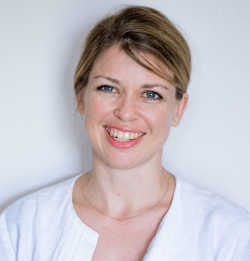
Olivia Rumble is a Senior Lecturer in IMEL. She holds a PPE from the University of Stellenbosch as well as an LLB and LLM in Environmental Law with distinction, from the University of Cape Town. She has a particular interest in, and has published widely on the topic of climate change law, and has been appointed to assist the Department of Environmental Affairs in drafting South Africa’s Climate Change Bill. Prior to joining the Institute, Olivia was a Senior Associate at ENSafrica, where she specialised in environmental law for seven years. She is currently a director at Climate Legal, a specialist climate change and environmental law consultancy. Olivia is a former clerk of the Constitutional Court and has worked with various NGOs on the intersection of environmental law and human rights. She has extensive experience in the laws relating to water resources, waste management, atmospheric emissions and South Africa’s broad suite of environmental laws. Olivia has advised national government departments and regional bodies on domestic and transboundary water law reform as well as nuclear energy regulatory reform. Her research interests include climate change law and governance, carbon taxes, pollution and energy law. Read more.
Email: Olivia.Rumble@uct.ac.za
-
Nicholas Simpson, Honourary Research Associate
 Nick’s current research concentrates on the complexity of climate risk, climate change literacy and perception, adaptation feasibility assessment, resilience, energy access, and climate security. He is a Lead Author of the Africa chapter of the IPCC 6th Assessment, and the Lead Author of the ICOMOS-IPCC-UNESCO White Paper on climate risk to heritage globally, and an African Academy of Science Affiliate Member (2021-2025). The Simpson et al. framework for complex climate change risk has extended and revised the IPCC risk framework to better conceptualise risk from response to climate and has led to high profile invitations to speak at events such as the Subsidiary Body for Scientific and Technological Advice Research Dialogue of the Thirteenth Meeting of the United Nations Framework Convention on Climate Change (2021). Nick’s resilience orientated research has extended security studies to the governance the novel harmscapes of climate change. This work has enhanced our understanding of the concept of resilience and how it informs responses to unanticipated and severe Anthropocene events; such as the Cape Town drought. His PhD concentrated on participatory sustainable decision-making and established theoretical and practice ready consilience between the capabilities approach and environmental assessment with an emphasis on better understanding of impacts on human wellbeing. His research in Africa also focuses on the very bottom end of the economic spectrum, aiming to support the creation and improvement of livelihoods and small businesses of those most at risk from climate change. This work has identified and published 'design principles' that inform the conceptualisation and evaluation of projects to aid in the replication of emerging sustainability-orientated work for humanitarian NGOs.
Nick’s current research concentrates on the complexity of climate risk, climate change literacy and perception, adaptation feasibility assessment, resilience, energy access, and climate security. He is a Lead Author of the Africa chapter of the IPCC 6th Assessment, and the Lead Author of the ICOMOS-IPCC-UNESCO White Paper on climate risk to heritage globally, and an African Academy of Science Affiliate Member (2021-2025). The Simpson et al. framework for complex climate change risk has extended and revised the IPCC risk framework to better conceptualise risk from response to climate and has led to high profile invitations to speak at events such as the Subsidiary Body for Scientific and Technological Advice Research Dialogue of the Thirteenth Meeting of the United Nations Framework Convention on Climate Change (2021). Nick’s resilience orientated research has extended security studies to the governance the novel harmscapes of climate change. This work has enhanced our understanding of the concept of resilience and how it informs responses to unanticipated and severe Anthropocene events; such as the Cape Town drought. His PhD concentrated on participatory sustainable decision-making and established theoretical and practice ready consilience between the capabilities approach and environmental assessment with an emphasis on better understanding of impacts on human wellbeing. His research in Africa also focuses on the very bottom end of the economic spectrum, aiming to support the creation and improvement of livelihoods and small businesses of those most at risk from climate change. This work has identified and published 'design principles' that inform the conceptualisation and evaluation of projects to aid in the replication of emerging sustainability-orientated work for humanitarian NGOs.Nick’s ORCiD Google Scholar Profile Email: nick.simpson@uct.ac.za
-
Sheona Shackleton, Honorary Professor
 Expertise: Adaptation, ecosystem services, rural livelihoods, equity, landscapes
Expertise: Adaptation, ecosystem services, rural livelihoods, equity, landscapesProf Sheona Shackleton holds two Honorary Professorships, one with the African Climate and Development Initiative (ACDI) at the University of Cape Town (where she was former Deputy Director) and one with the Department of Environmental Science at Rhodes University, both in South Africa. Sheona has worked at the interface between rural development, livelihoods, natural resource use and management, ecosystem services, landscape resilience and climate change adaptation over the past 40 plus years. Most of her research has been inter- and transdisciplinary, and thus highly engaged and action-orientated. Recent work has explored what is needed for successful transdisciplinary research that is equitable, fair and effective in addressing global sustainability challenges. She has extensive project management experience, especially in team contexts, has published widely, and is well connected internationally.
Email: sheona.shackleton@uct.ac.za
-
Clifford Shearing, Public Law
Designation: Leads the Global Risk Governance Programme
Expertise: Environmental and physical security, with a focus on the development of theoretical understandings that can be used to enhance the quality of security and justice governance
Prof. Clifford Shearing leads the Global Risk Governance Programme. He holds professorships at the Law Faculty, University of Cape Town; Griffith Institute of Criminology, Griffith University, Australia; the School of Criminology, University of Montreal and the Durban University of Technology, as well as a visiting position at the University of New South Wales. Clifford obtained a PhD in Sociology at the University of Toronto in 1977. He is an NRF A-rated researcher.
Clifford is a well-established and internationally recognised scholar in the field of policing and security. His research and writing has focused on the development of theoretical understandings that can be used to enhance the quality of security and justice governance. A focus of his work has been contributing to the development of institutions and processes that enhance the ability of poor collectivities to both direct and add value to their security and justice. He has also been developing research on environmental security. Read more.
Tel: +27 21 650 3072 / 3451 · Email: clifford.shearing@uct.ac.za
-
Jessica Thorn, CR4D Fellow
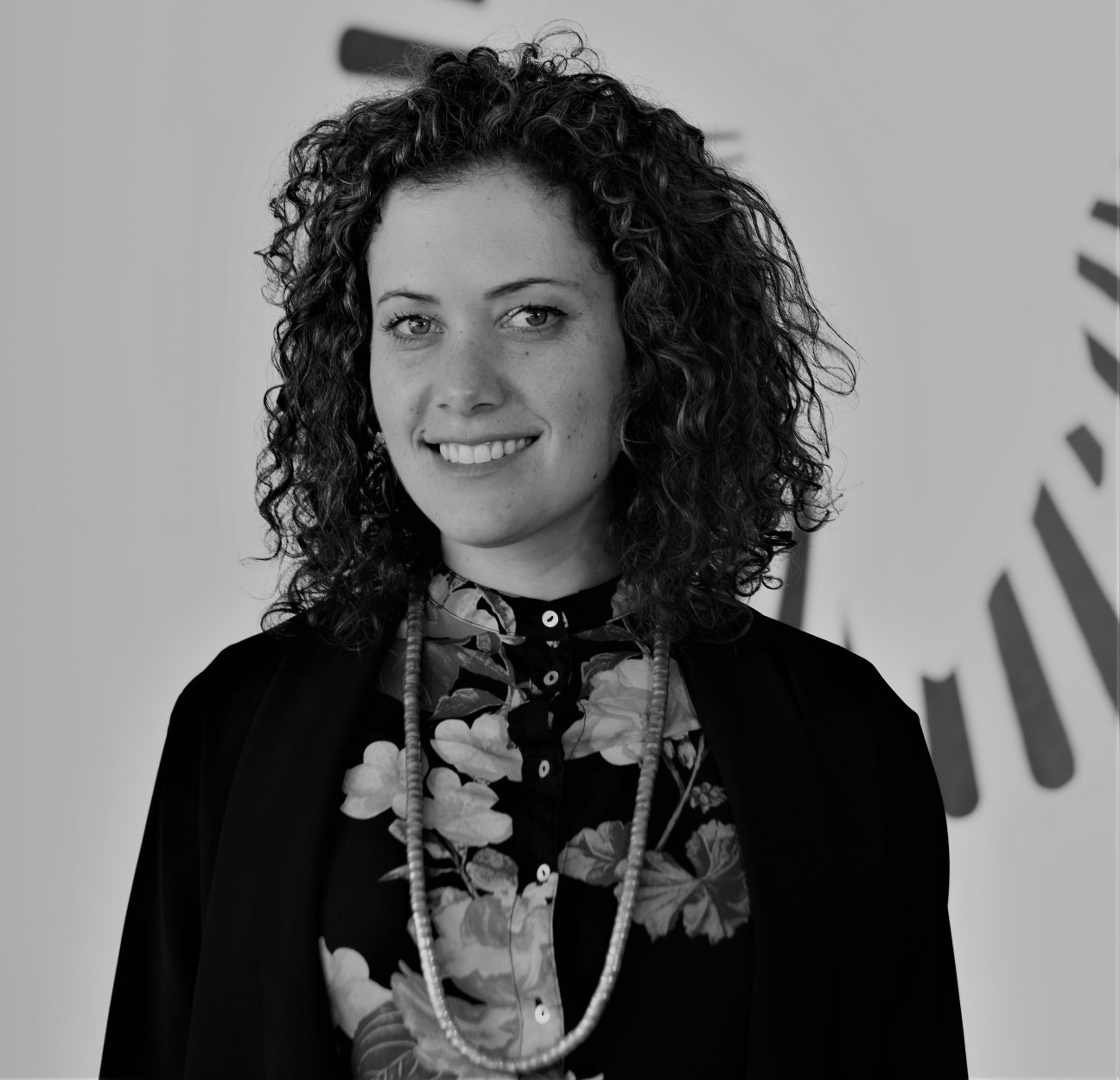
Designation: ACDI African Women in Climate Change Science and CR4D Fellow, Research Associate in the Department of Geography and Environment, University of York
Expertise: Social-ecological systems; biodiversity and ecosystem services; green urban infrastructure; development corridors; global environmental change; participatory modelling; climate variability and risk; adaptation; wellbeing; climate-smart agriculture.
Jessica is a Namibian ecologist with a background in human geography, holding a CR4D and African Women in Climate Change fellowship at ACDI. She is also a research associate at the University of York, University of Nairobi, and African Conservation Centre. She uses probabilistic social-ecological modelling and scenario analysis to measure impacts of development on land use change. Currently, Jessica is working on an ESRC-funded collaborative capacity building project, using participatory scenario planning to measure potential impacts of Chinese foreign direct investment in transportation corridors in East Africa. She is also leading an IDRC-funded project predicting the synergies and trade-offs of ecological infrastructure in peri-urban areas. Most recently, she assessed the potential impact of climatic and demographic change on local actor decisions and land use in mountain social-ecological systems, and biodiversity and ecosystem services in smallholder agricultural landscapes. Jessica completed her BSocSci(Hons) at UCT, MSc and DPhil at Oxford, and postdoctoral studies at Colorado State University and ETH Zurich.
Jessica has been involved in various NSF, NERC, NRF, DFID, CGAIR, IDRC, ESRC, and USAID funded projects, conducting field research in Nepal, India, Vietnam, Tanzania, Namibia, Kenya, Ghana, South Africa, Switzerland and Peru. Her professional activities have been affiliated with the UN (e.g., Environment Programme and International Strategy for Disaster Risk Reduction), governments (e.g., South Africa, Ghana), NGOs (e.g., Conservation International, WWF), working closely with local stakeholders across sectors and scales to generate new information. Jessica has similarly conducted research for the Climate Change Agriculture and Food Security, Centre for International Forestry Research, Kew Royal Botanical Gardens, Cambridge, Oxford, London School of Economics, and Brown University. Jessica sits on advisory boards for five CBOs, is an elected member of the Global Environmental Facility, has advocated for ecosystem-based disaster risk reduction at the Global Platform for Disaster Risk Reduction and UNFCCC COP, and is a contributing author to The Economic of Ecosystems and Biodiversity reports. She has taught on international courses in Global Biodiversity Trade and Indigenous Communities, Field Ecology, Wildland Ecosystems, Urban Geography, Global Challenges for the 21st Century, and Cities of the South and is currently supervising one PhD student and three MSc students.
Email: jessica.thorn@uct.ac.za or jessica.thorn@york.ac.uk
Tel: (Kenya) +254 746 723 537 · (UK) +44 7578 883 391 and +44 1904 324 212
Project websites: Development Corridor Partnerships · York Institute for Tropical Systems · Urban Ecolutions
-
Emily Tyler, Honorary Research Affiliate
Expertise: low carbon policy, energy policy, economics, critical complexity, complex systems thinking, transdisciplinarity
Dr Emily Tyler is a leading expert in energy and climate policy and strategy in developmental contexts. She brings a lens of complexity and systems thinking together with her disciplinary grounding in economics, finance and political economy to the complex challenges she encounters in this space.
Emily has over 20 years of professional experience in topics spanning carbon pricing and budgeting, climate finance, power sector modelling, policy instruments, corporate and investor carbon strategies, the international climate policy regime and low carbon transition planning. Finding the interplay between practice and reflection particularly rich, Emily has worked to retain both her consulting and academic presence throughout her career. She is currently working with the team at Meridian Economics, a Cape Town based think tank in the energy and climate space, and holds an Honorary Research Associate position at the University of Cape Town's African Climate and Development Institute. Emily is frequently engaged in transdisciplinary research initiatives relating to her field and publishes regularly in both domestic and international journals.
Tel: +27 (0) 72 225 5619 · Email: emily.tyler@uct.ac.za · Web: www.emilytyler.co.za
-
Harald Winkler, Faculty of Engineering and the Built Environment
Designation: Professor, Faculty of Engineering and the Built Environment
Expertise: Climate change mitigation; energy and climate policy; energy and environmental economics; sustainable development; mitigation
Harald Winkler is a Professor within the Faculty of Engineering and the Built Environment at the University of Cape Town. He is rated as an “internationally acclaimed researcher” (B2) by SA’s National Research Foundation, is a member of editorial boards of five international journals, has been a member of the SA delegation to the negotiations under the UN Framework Convention on Climate Change and been a lead author lead author for the Intergovernmental Panel on Climate Change’s Working Group III on mitigation. Harald’s research interests are focused around climate policy, at international and national level. He led the research work underpinning South Africa’s Long-Term Mitigation Scenarios (LTMS). From 2010 to 2015, a significant focus of his work with other developing countries to share the LTMS experience in a programme called MAPS – Mitigation Action Plans and Scenarios (see www.mapsprogramme.org). He developed the proposal of sustainable development policies and measures (SD-PAMs). Current focus areas and research interests include: the future of the climate regime and implementation of the Paris Agreement, Equity and climate change, including work on ‘equitable access to sustainable development’, equity in nationally determined contributions and ‘zero poverty zero emissions’ pathways, Sustainable energy paths for South Africa, particularly in energy use and supply, Comparative analysis of mitigation actions in cities and in developing countries. Harald has taught and supervised postgraduates since 2000, including teaching in the ACDI courses. and with his ERC colleagues ensures there is a focus on energy and mitigation. Harald was also part of the Steering Committee that set up ACDI.
Email: harald.winkler@uct.ac.za
-
Piotr Wolski, Climate System Analysis Group (CSAG)
Designation: Research Officer, Climate Systems Analysis Group
Expertise: Climate change and hydrology
In principle, Piotr is a hydrologist, but in terms of his recent research and activities, he seem to be sitting on a fence, between water and climate. So, he can define himself as a hydro-climatologist. Since joining CSAG formally in 2012, Piotr has been using climate model outputs for hydrological analyses in the context of climate change impact assessment, attribution and seasonal forecasting. He has also been running attribution experiments. Piotr also works on various aspects of visualization and presentation of climate data, that include articulation of uncertainties, developing visualizations such as "plume plots", and analytical tools such as "SOM-space trajectories", and doing all sorts of analyses that often include bootstrapping. It thus seems that in broader context, he revels in figuring out how the uncertainties and errors propagate through the various processing steps that are involved in translating climate data into (hopefully) useful information. Read more.
-
Vernon Visser, Centre for Statistics in Ecology, Environment and Conservation (SEEC)
Designation: Research Officer, Centre for Statistics in Ecology, Environment and Conservation (SEEC), and ACDI Senior Researcher
Expertise: Species distribution modelling (particularly grasses); occupancy modelling population ecology; Bayesian methods decision analysis; spatial statistics and remote sensing.
Vernon is currently a research officer within SEEC. Prior to joining SEEC, Vernon held post-docs at the Centre for Invasion Biology at Stellenbosch University and at the University of Sheffield in the UK. Vernon also completed his PhD in grassland ecology at the University of Sheffield. He has run courses on species distribution modelling in R on behalf of SANBI, the Centre for Invasion Biology, and the South African Association for Marine Biological Research. He is also chair of the Alien Grass Working Group, an initiative of SANBI’s Directorate for Biological Invasions.
Vernon has strong expertise in species distribution modelling, occupancy modelling, population ecology, Bayesian methods, decision analysis, spatial statistics and remote sensing. His work at the ACDI focuses on the effects of rainfall timing changes (seasonality, intensity and variability) on ecosystems and human livelihoods, centering on grasses, changes in broad-scale vegetation patterns, fire frequencies and agricultural potential. Underpinning this are observed changes in rainfall. Outputs of this research will help people make informed decisions and help them adapt to a changing climate.
Email: vernon.visser@uct.ac.za














